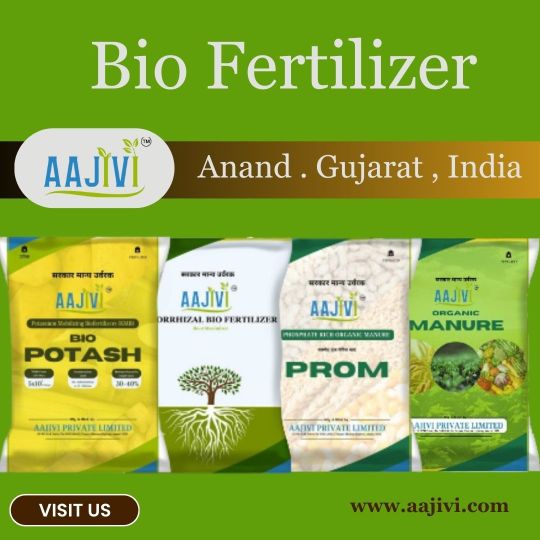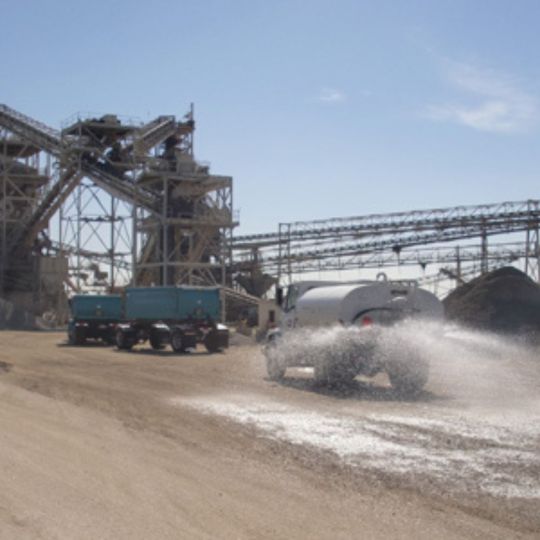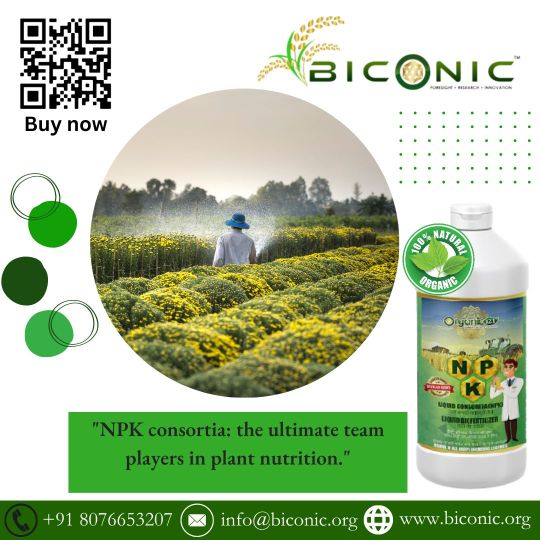#npk
Text

Doc " Heavy Metal " Love
Street Outlaws 405
25 notes
·
View notes
Photo

You should see the amount the plants we have helped our customers save! 💚😃 It doesn't matter what you're growing we have everything in our shop to help your plants at every stage and cycle.💪 Any plant, Any problem! 🌎 Our trained staff can get down to the nitty-gritty of your plants and help stop any issues before they arise. 💯 #HousePlants #Plants #Plantnutrients #fertilizer #npk #gardening #garden #horticulture #botany #plantlife #highdesert #Phelan, #hydroponic #friends #family #followus (at Phelan Hydro & Garden Supply) https://www.instagram.com/p/Cm0Q1pZLTDI/?igshid=NGJjMDIxMWI=
#houseplants#plants#plantnutrients#fertilizer#npk#gardening#garden#horticulture#botany#plantlife#highdesert#phelan#hydroponic#friends#family#followus
2 notes
·
View notes
Photo

The #Nutrients N-P-K correlate with the 3 numbers you see on the front of any of your favorite brands of nutrient supplements for your plants.🥰😍 In general plants need significant amounts of nitrogen, phosphorus, and potassium to thrive. 🌿💚 Over time your soil may not supply enough nutrients for your plants. By adding the perfect recipe of nutrients can and will bring your soil back and give you the #vigor and beauty you have been looking for.🌻🌻 #Gardening #Beautifulflowers #NPK #Curbappealflowers #beautifulgardens #beautifulHomes #pink #yellow #CaliforniaBeaches #sealbeach #NutrientsForPlants (at The Growers Depot) https://www.instagram.com/p/CgKIdNgrtcM/?igshid=NGJjMDIxMWI=
#nutrients#vigor#gardening#beautifulflowers#npk#curbappealflowers#beautifulgardens#beautifulhomes#pink#yellow#californiabeaches#sealbeach#nutrientsforplants
2 notes
·
View notes
Text
How to Prepare Haifa Multi-K Greenhouse Grade Potassium Nitrate Fertilizer In Solution…
#Haifa #MultiK #NPK #PlantNutrients #CropNutrients #MicroNutrients #MacroNutrients #Fertilizers #GrowSupplies #CropProduction #Horticulture #Floriculture #CEA #Hydroponics #Aeroponics #Aquaculture #Plants #Crops #Greenhouses #Farms #Agriculture #AG #IndoorFarms #GrowRooms #GrowOps #Farmers #Farming #LosAngeles #LA #CA
0 notes
Text

National Presto Industries Inc Struggles in Fourth Quarter Earnings Report https://csimarket.com/stocks/news.php?code=NPK&date=2024-03-16095351&utm_source=dlvr.it&utm_medium=tumblr
0 notes
Text

#BioFertilizer#OrganicFertilizer#OrganicManure#ManureFertilizer#BentoniteSulphur#BioPotash#Prom#NPK#Agricultureandfarming#fertilizers#potashfertilizer#agricultureproducts#promfertilizer#organicmanurefertilizer#npkconsortiafertilizer#mycorrhizafertilizer#allbiofertilizers#distributors#Distributorship#manufactures#wholesalers#newbusiness#distribution#india
0 notes
Text
Where once we were all pretty much farmers, or very close to the land, and we rotated crops, studied yields, used livestock as land fertility aids and worshipped soil gods over lifetimes, not just financial years, now we just ring up the agronomist and order NPK. Where we once all felt, in our hands and backs and stomachs, the health of the soil that nurtured us, now we look at spreadsheets and averages and statistically relevant results. For a while, we lost the gratitude our forebears had for the soil they worked, the land they trod, the wisdom they garnered by growing stuff and watching the earth with more than passing interest, and more of a survival instinct.
"Soil: The incredible story of what keeps the earth, and us, healthy" - Matthew Evans
#book quotes#soil#matthew evans#nonfiction#farmers#farming#crop rotation#crop yields#livestock#soil fertility#deities#lifetime#financial year#agronomist#agronomy#npk#nitrogen#phosphorus#potassium#soil health#spreadsheets#statistics#gratitude#forebears#ancestors#survival
0 notes
Text
Future of Agriculture - Organic Fertilizer Bio NPK Manufacturer

Agriculture is the backbone of human civilization, providing sustenance and livelihood to billions of people around the world. While modern agricultural practices that have sustained our growing population for decades are facing significant challenges. From soil erosion and excessive use of chemical fertilizers to climate change and shrinking arable land, the future of agriculture demands innovative solutions. Organic Fertilizer Bio NPK (Nitrogen, Phosphorus, and Potassium) manufacturing is at the forefront of this agricultural revolution, providing a sustainable and eco-friendly approach to nourishing our crops while preserving the environment.
We will explore the future of agriculture and look at the role of organic fertilizer Bio NPK manufacturers. We will discuss the current agricultural scenario, the challenges it faces and how these innovative fertilizers can lead agriculture towards a more sustainable and prosperous future.
State of Modern Agriculture
A. Conventional Fertilizers and Their Issues
Modern agriculture has become heavily dependent on chemical fertilizers to increase crop productivity. Although these fertilizers have been helpful in feeding the global population, they come with several problems:
- Soil Erosion: Excessive use of synthetic fertilizers depletes the soil of essential nutrients and microorganisms, leading to reduced fertility and long-term damage to the land.
- Water Pollution: Runoff from chemical fertilizers can contaminate water bodies, causing harmful algae growth and negatively impacting aquatic ecosystems.
- Climate Change: The production and application of synthetic fertilizers releases significant amounts of greenhouse gasses, which contribute to climate change.
B. Shrinking Cultivable Land
The world's population is continuously increasing, yet arable land is decreasing due to urbanization and land degradation. This growing disparity between food demand and available agricultural land underlines the need for sustainable and efficient agricultural practices.
Organic Fertilizers and Their Benefits
A. Understanding Organic Fertilizers
Organic fertilizers are obtained from natural sources such as plants, animals, and microorganisms. They offer several advantages over their synthetic counterparts:
- Improved Soil Health: Organic fertilizers enhance soil structure, increase microbial activity, and improve nutrient retention, making soil healthier and more fertile.
- Reduction in Environmental Impact: The environmental impact of organic fertilizers is quite low. They do not release harmful chemicals or greenhouse gasses into the atmosphere.
- Continuous Nutrient Release: Organic fertilizers release nutrients slowly over time, ensuring a continuous and balanced supply of essential elements to crops.
B. Bio NPK Fertilizer
Bio NPK fertilizers combine the benefits of organic fertilizers with the precision of providing essential NPK nutrients. These advanced fertilizers are manufactured using biotechnology processes that harness the power of beneficial microorganisms.
- Nitrogen (N) – Essential for plant growth and protein synthesis.
- Phosphorus (P) – Essential for root growth and energy transfer.
- Potassium (K) – Helpful in overall plant health and disease resistance.
Role of Bio NPK Fertilizer Manufacturers
A. Innovation in Manufacturing Organic Fertilizer Bio NPK
Bio NPK fertilizer manufacturers use cutting-edge biotechnology methods to create sustainable and highly effective fertilizers:
- Microbial Consortia: Using diverse microbial communities to increase nutrient availability, improve soil structure, and reduce environmental impacts.
- Custom Formulation: Customizing NPK ratios to meet specific crop and soil requirements, optimizing yield and quality.
- Biodegradable Packaging: Reducing plastic waste and environmental pollution through eco-friendly packaging options.
B. Benefits of Bio NPK Fertilizers
The use of Bio NPK fertilizers benefits both the environment and agricultural productivity:
- Soil Regeneration: These fertilizers promote soil regeneration, improving its ability to retain moisture, resist erosion, and support healthy microbial life.
- Increased Crop Yields: Bio NPK fertilizers ensure that plants receive the right nutrients at the right time, thereby increasing crop yields and improving crop quality.
- Environmental Management: Minimizing environmental impact, including greenhouse gas emissions, water pollution and land degradation.
Future of Agriculture with Bio NPK Fertilizers
A. Sustainable Agriculture
The future of agriculture lies in sustainability, and Bio-NPK fertilizers are set to play a key role in this transformation.
- Climate Resilience: Organic Bio-NPK fertilizers help crops withstand environmental stresses such as drought and extreme temperatures, contributing to climate-resilient agriculture.
- Food Security: As the global population continues to grow, sustainable agricultural practices will be essential to ensure food security without depleting natural resources.
- Soil Health: Improved soil health through organic fertilizers ensures long-term productivity, reducing the need for costly soil amendments and interventions.
B. Ecological Restoration
Bio-NPK fertilizers can also support efforts to restore ecosystems and protect biodiversity:
- Reversing Land Degradation: By promoting soil health and reducing soil erosion, Bio NPK fertilizers contribute to the restoration of degraded lands.
- Protection of Water Quality: The absence of harmful chemical runoff from organic fertilizers protects aquatic ecosystems and the quality of our water resources.
- Promoting Sustainable Farming Practices: Adoption of Bio-NPK fertilizers promotes responsible land management and sustainable agriculture.
Challenges and Opportunities
A. Adoption and Education
While the potential benefits of Bio-NPK fertilizers are significant, challenges exist in adoption and education:
- Knowledge Gap: Farmers require education and training to understand the benefits and application of these innovative fertilizers.
- Cost Considerations: Initial costs may be high, but long-term benefits, such as lower input costs and better yields, compensate for these expenses.
B. Market and Policy Support
Governments and agricultural organizations play an important role in promoting Bio-NPK fertilizers:
- Subsidies and Incentives: Government subsidies can make Bio-NPK fertilizers more accessible to farmers, thereby accelerating their adoption.
- Research and Development: Funding research into new formulations and technologies can promote innovation in organic fertilizer manufacturing.
- Regulation and Certification: Ensuring the quality and safety of Bio-NPK fertilizers through certification processes builds confidence among farmers.
Study The Matter
To demonstrate the practical impact of Bio-NPK fertilizers, we will examine some case studies of successful adoption:
A. Sustainable Agriculture in India
Agricultural cooperatives in India have adopted Bio-NPK fertilizers, which have increased crop yields and improved the livelihoods of small farmers.
B. Ecological Restoration in the Amazon
Bio-NPK Fertilizers are being used to regenerate soil and support reforestation in efforts to restore deforested areas in the Amazon rainforest.
Conclusion
The future of agriculture is at a crossroads, facing serious challenges that require sustainable solutions. Organic Fertilizer Bio NPK manufacturers are at the forefront of this agricultural revolution, offering innovative, eco-friendly fertilizers that can help address the issues of soil erosion, water pollution and climate change. These improved fertilizers not only improve crop yields but also contribute to soil regeneration, climate resilience and ecological restoration.
The success of Bio-NPK fertilizers depends on widespread adoption, education, and support of governments, agricultural organizations and the farming community. By adopting this sustainable approach to agriculture, we can ensure food security, protect our environment and create a brighter future for future generations. The future of agriculture is organic, sustainable and Bio-NPK powered.
#marketplace#agriculture b2b marketplace#agriculturemarketplace#b2b trade portal#tradeportal#b2bmarketplace#b2btradeportal#b2b marketplace#trade portal#kisaantrade#OrganicManure#BioNPK#NPK
0 notes
Text
Choosing the Right Fertilizer Additives for Your Crops
Introduction
In the world of modern agriculture, achieving maximum crop yields while maintaining soil health and minimizing environmental impact is a top priority. Fertilizer additives play a crucial role in this delicate balance by enhancing nutrient delivery to crops, improving soil structure, and mitigating nutrient losses. However, the vast array of fertilizer additives available can make selecting the right ones a complex task. In this comprehensive guide, we will delve into the world of fertilizer additives, exploring their types, benefits, and key considerations to help you make informed decisions for your specific crop needs.
Understanding Fertilizer Additives
Fertilizer additives, also known as soil amendments or conditioners, are substances mixed with fertilizers to enhance their performance and tailor them to meet the specific requirements of different crops and soil types. These additives can be organic or inorganic and serve various essential purposes:
1. Soil Conditioners
Soil conditioners are additives designed to improve the physical properties of the soil. They work on enhancing soil structure, aeration, water retention, and nutrient-holding capacity. By doing so, they make it easier for plant roots to access essential nutrients. Common soil conditioners include:
Compost: Compost is rich in organic matter and serves as an excellent conditioner by improving soil structure and providing a slow-release source of nutrients.
Peat Moss: Peat moss is known for its ability to retain moisture and improve soil aeration, making it suitable for soil conditioning.
Vermiculite: Vermiculite is a mineral that helps improve soil water retention, ensuring that plants have access to consistent moisture.
2. Stabilizers
Stabilizers are additives employed to prevent nutrient losses from fertilizers due to leaching or volatilization. They are particularly useful for maintaining the availability of nutrients to plants over time. Common stabilizers include:
Urease Inhibitors: Urease inhibitors slow down the breakdown of nitrogen-based fertilizers, such as urea, reducing the risk of ammonia volatilization and nitrogen loss.
Nitrification Inhibitors: These inhibitors delay the conversion of ammonium-based nitrogen fertilizers into nitrate forms, reducing nitrogen leaching into groundwater.
3. Chelating Agents
Chelating agents are used to improve the availability of micronutrients to plants. They work by preventing these essential elements from binding to soil particles, making them more accessible to plant roots. Common chelating agents include:
EDTA (Ethylenediaminetetraacetic Acid): EDTA is often used to chelate micronutrients such as iron, manganese, and zinc, ensuring they remain available for plant uptake.
DTPA (Diethylenetriaminepentaacetic Acid): DTPA is another chelating agent used for similar purposes, particularly in alkaline soils.
EDDHA (Ethylenediamine-N, N'-bis(2-hydroxyphenylacetic acid)): EDDHA is an excellent choice for chelating iron in high-pH soils.
4. Slow-Release Fertilizers
Slow-release fertilizers are additives that provide a controlled and sustained release of nutrients over an extended period. This gradual nutrient release minimizes the risk of nutrient imbalances and reduces the need for frequent reapplication. Common slow-release fertilizer options include:
Coated Urea: Coated urea releases nitrogen slowly, ensuring a steady supply of this essential nutrient to the plants.
Polymer-Coated Fertilizers: These fertilizers are encapsulated in a polymer coating that regulates nutrient release over time, reducing the frequency of applications.
5. Bio-Stimulants
Bio-stimulants are organic additives that stimulate plant growth and development, enhance nutrient uptake, and improve stress tolerance. They work by fostering beneficial microbial activity in the soil and promoting root growth. Common bio-stimulants include:
Seaweed Extracts: Seaweed extracts are rich in plant hormones, vitamins, and trace elements that boost plant growth and overall health.
Humic Acids: Humic acids improve soil structure, increase water retention, and stimulate microbial activity, leading to enhanced nutrient availability.
Mycorrhizal Fungi: These beneficial fungi form symbiotic relationships with plant roots, facilitating nutrient absorption and enhancing plant resilience.
Benefits of Using Fertilizer Additives
Now that we've explored the types of fertilizer additives available, let's delve into the numerous benefits they offer to modern agriculture:
Increased Nutrient Efficiency
One of the primary advantages of using fertilizer additives is the enhanced efficiency of nutrient utilization by crops. These additives can improve the absorption and availability of nutrients, ensuring that plants receive the optimal balance of essential elements they need for growth and development.
Reduced Environmental Impact
Fertilizer additives can play a crucial role in reducing the environmental impact of agriculture. By minimizing nutrient leaching and runoff, they help protect water bodies from pollution, safeguarding aquatic ecosystems and human health.
Customized Nutrition
Different crops have varying nutrient requirements. Fertilizer additives allow you to tailor your fertilizer mix to meet the specific needs of your crops. This customization ensures that each plant receives the right balance of nutrients, contributing to healthier and more productive harvests.
Improved Soil Health
Soil conditioners, such as compost and peat moss, enhance soil structure and microbial activity. They also increase the organic matter content in the soil, creating a healthier environment for plant roots and beneficial soil organisms. Over time, this results in improved soil health and fertility.
Sustainable Agriculture
The use of slow-release fertilizers and bio-stimulants promotes sustainable agriculture by reducing the frequency of fertilizer applications and enhancing the overall health of the agroecosystem. This approach helps maintain soil fertility and reduces the risk of nutrient imbalances that can harm the environment.
Choosing the Right Fertilizer Additives
Selecting the appropriate fertilizer additives for your crops involves careful consideration of various factors. To make informed decisions, follow these key steps:
Soil Testing
Start by conducting a comprehensive soil test on your fields. Soil testing provides valuable information about your soil's pH, nutrient levels, and organic matter content. This data forms the foundation for your fertilizer and additive decisions.
Crop Analysis
Consider the specific nutritional requirements of the crops you intend to grow. Some crops may require additional micronutrients, while others may benefit from improved soil structure and water-holding capacity. Understanding your crop's needs is essential for effective nutrient management.
Consultation
Seek advice from agricultural experts, local extension services, or agricultural universities. These professionals can provide valuable insights tailored to your region and specific crop varieties. They can help you choose the right additives and design a fertilizer program that optimizes your crop yields.
Trial and Observation
Before committing to large-scale application, conduct small-scale trials with different fertilizer additives. Observe how your crops respond to these treatments and assess their impact on growth and yield. This empirical approach allows you to fine-tune your additive choices.
Monitor and Adjust
Regularly monitor the progress of your crops and soil health throughout the growing season. Make adjustments to your fertilizer and additive regimen as needed based on crop performance and soil conditions. Continuous monitoring ensures that you maintain the optimal nutrient balance.
Conclusion
Choosing the right fertilizer additives for your crops is a pivotal step in achieving sustainable, high-yield agriculture. By understanding the types of additives available and the benefits they offer, conducting thorough soil and crop assessments, seeking expert advice, and monitoring your fields, you can make well-informed decisions that promote healthier soils and bountiful harvests. Remember, a balanced and customized approach to fertilization is key to a prosperous future for your farm, while also minimizing the environmental footprint of modern agriculture.

#fertilizer#fertilizeradditives#fertilizerchemicals#fertilizer chemicals manufacturers#fertilizer industry#fertilizer chemicals suppliers#fertilizer chemicals distributors#fertilizer chemical manufacturing#fertilizer npk#npk#dap#chemicals for fertilizer
0 notes
Text
Технологія ЯРОС, NPK: мінімум добрива – максимум ефекту
Внесення добрив насичує ґрунт необхідними елементами, покращує його стан та допомагає отримати здоровий рясний врожай. Це необхідний процес для будь-якого господарства, саду та городу. Навіть кімнатні квіти потребують підживлення – кожній рослині потрібні NPK. Дізнайтеся що означає технологія ЯРОС, NPK, яка дозволяє отримати максимальний ефект з мінімальним використанням добрив. Економте кошти та…

View On WordPress
0 notes
Text

Large quantities supply for landscaping projects and golf course, Road landscaping, nurseies professional usage
Low EC
0-20 seeve
Cocopat chips

#coco peat#coconut#agriculture#peat moss#npk#Root barrier nurseries#landscape#fertilizer#nanpoo#garden soil#Salt barrier#garden#garden design#export
1 note
·
View note
Text
Enhance Efficiency with Pneumatic Tools NPK, Hose Reels, and Dividers

Optimize Performance with Pneumatic ToolsNPK: Pneumatic tools, also known as NPK, are powered by compressed air and offer numerous advantages in industrial applications. These are renowned for their durability, reliability, and high performance. From impact wrenches and nail guns to sanders and grinders, these tools excel in tasks that require power and precision. With their lightweight design and ergonomic features, NPK reduce operator fatigue and enhance overall productivity. Incorporate these tools into your operations to experience faster and more efficient work processes.
Streamline Hose Management with Hose Reels: Hose reels are indispensable tools for managing and organizing hoses in various settings. Whether you need to handle air hoses, water hoses, or other types of tubing, hose reels offer convenience and efficiency. These reels come in different sizes and configurations to accommodate various hose lengths and diameters. With a hose reel, you can easily store and access hoses without tangles, knots, or damage. This saves time, reduces tripping hazards, and extends the lifespan of your hoses. Streamline your hose management and improve workflow by incorporating hose reels into your workspace.
Promote Organization with Dividers: Dividers are versatile tools that help create order and maximize space utilization in diverse environments. Whether you need to organize tools, parts, or documents, dividers provide efficient storage solutions. They can be used in toolboxes, storage bins, filing cabinets, and shelves to create compartments and sections. Dividers allow you to categorize items, optimize accessibility, and reduce clutter. By promoting organization, dividers enhance efficiency and facilitate smoother workflows. Experience the benefits of streamlined operations by implementing dividers in your workspace.
0 notes
Text
youtube
Zhejiang Tongli Heavy Machinery Manufacturing Co., Ltd Brochure
Zhejiang Tongli Heavy Machinery Co., Ltd(Formerly known as Tongxiang coal &mining Machinery Plant) established in year 1958 is a member of the Chinese National Building Material Machinery Association.
TONGLI is on the vendor list of designated production enterprise of the Ministry of Fertilizer Industry. ISO9001、ISO14001、ISO45001 certified, accredited as High-tech & new technology enterprise of Zhejiang Province, TONGLI ZJTL series fertilizer equipment has won the Chinese National Torch Award.
TONGLI is one of the earliest & largest Fertilizer Production Equipment Manufacturer in China, committed to providing high-quality compound fertilizer production equipment for global customers.
Contacting Details:
Mr. Richard
Website: www.npk-fertilizer.com
Linkedin: Zhejiang_Tongli
Email: [email protected]
Whatsapp: +86 15988878668
#ballmill#rotarykiln#agriculture#agricultureequipment#npk#npk_fertilizer#machinery#heavymachinery#mining#cement#crusher#npkfertilizerproductionline#fertilizerproductionequiptment#fertilizerplantequiptment#fertilizerplantmachinery#fertilizermanufacturingequiptment#fertilizerproductionmachine#fertilizergranulatormachineprice#fertilizergranulemakingmachine#compoundfertilizerproductionline#fertilizerequiptmentinc#npkproductionline#fertilizergranulation equipment#NPK Project#Fertilizer Production Plant#Compound Fertilizer Production Line#Organic Compound Fertilizer Production Line#Fertilizer Production Equipment#NPK Manufacturing Process#fertilizer
0 notes
Text





Get The Best Dust Control Agents - NAQ Global
At NAQ Global, we develop the best organic fertilizer material. Coated fertilizers with dust control agents effectively supply nutrients to plants. and the food industry. It can also benefit from Fertilizer Dust control agents. It is also suitable for the environment since it is an eco-friendly fertilizer. Visit our website to learn more.
#anti dusting agents#fertilizer coating material#NPK#organic fertilizer coating#safe fertilizer coating#fertilizer dust control
0 notes
Text

"NPK Consortia"
mail on:- [email protected]
contact us:- +91 8076653207
#NPK#npkconsortia#organicfarming#organicfood#organic#tree#plant#plants#trees#organiclife#organicskincare#organicchemistry#trend#treatment#fresh
0 notes
Link
Hp 0812-7752-8211 Distributor pupuk NPK Non Subsidi Indonesia
#pabrikpupuknpk#penyalurpupuk#penyalurpupuknpk#hargapupuk#pupuknpknonsibsidi#jualpupuk#pupuknpk#pupuk#distributorpupuk#distributorpupuknpk#produsenpupuknpk#produsenpupuk#pabrikpupuk#Npk#SNI#terdaftar#pupuksawit#pupukkelapasawit#pupukanorganik#pupukkombinasi#pupuknonsubsidi#pupukmurahberkualitas#updatehargapupuk#PupukIndonesiaAda#petani#sawit#kelapasawit#padi#sawah#jagung
0 notes